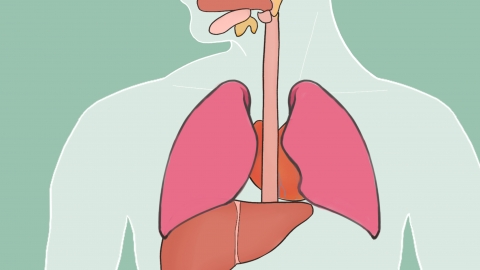Can poor cardiopulmonary function cause respiratory problems?
Generally speaking, whether poor cardiorespiratory function can cause breathing problems depends on the specific degree of impairment. If discomfort symptoms occur, it is recommended to seek timely treatment at a reputable hospital. The specific analysis is as follows:

If cardiorespiratory function is only mildly impaired, such as due to long-term lack of exercise leading to decreased function, significant breathing problems typically won't be triggered. At this stage, the heart and lungs can still meet the oxygen supply demand during daily light activities. Shortness of breath may occur only during intense exercise and quickly resolves with rest, having minimal impact on normal life.
If cardiorespiratory function is severely impaired, such as in cases of severe heart failure, chronic obstructive pulmonary disease (COPD), and other conditions, breathing problems can be directly triggered. Weakened cardiac pumping function or impaired pulmonary ventilation and gas exchange function can lead to oxygen deficiency in the body, causing persistent shortness of breath and difficulty breathing, which may even occur at rest and seriously affect quality of life.
Individuals with poor cardiorespiratory function should avoid excessive fatigue in daily life and choose mild exercises like walking to gradually improve physical fitness. Regular cardiorespiratory function check-ups are necessary to monitor changes in the degree of impairment. If symptoms such as worsening breathing difficulties or leg swelling occur, timely medical attention should be sought. At the same time, quitting smoking, limiting alcohol consumption, and maintaining good indoor air circulation can help reduce the burden on the heart and lungs and lower the risk of breathing problems.




